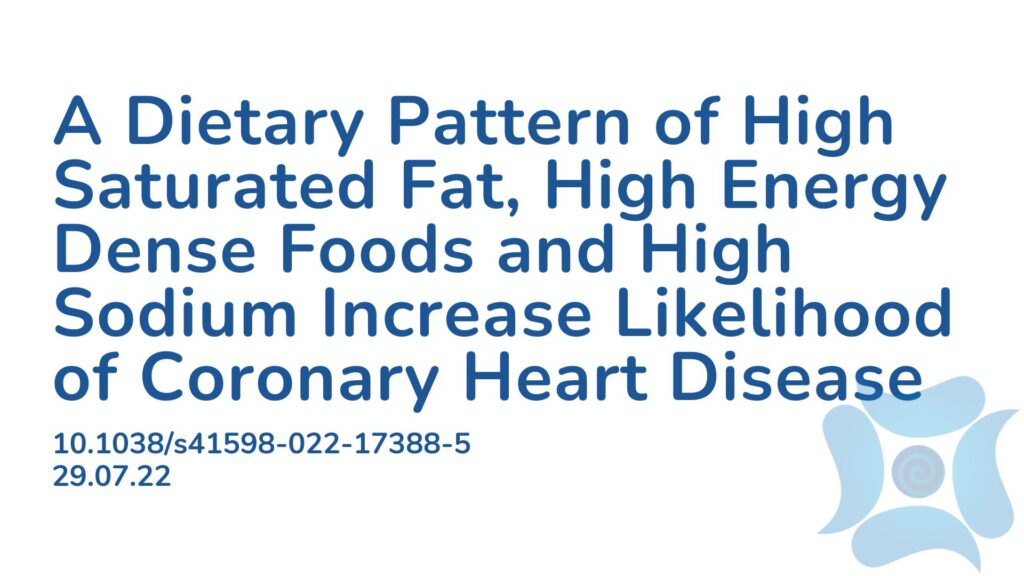Summary: Dietary and Lifestyle Changes Including Stopping Smoking, Reducing Weight and Eating a Nutritious Diet are Important to Reduce Risk of Coronary Heart Disease (CHD) and Other Risk Factors for Cardiovascular Disease (CVD). Research has historically focused on the individual impacts of single nutritional components such as dietary fat, sugars and fibre, however there is emerging evidence suggesting that rather than single factors, overall dietary patterns are more important. This study aimed to find an association between dietary patterns and CHD among high-risk adults. The dietary pattern found to be most influential in the etiology of coronary heart disease was high consumption of saturated fatty acids, high dietary energy density and high sodium. This study suggests that individuals with this dietary pattern have a significantly increased likelihood of having coronary heart disease compared to those who do not.
Abstract:
This study aimed to determine the association between dietary pattern (DP) and coronary heart disease (CHD) among high-risk adults as determined by metabolic syndrome (MetS) criteria in Malaysia. This cross-sectional study involved 365 participants with (CHD = 178; non-CHD = 187) who were recruited from selected health clinics. Dietary intake was measured using a 189-item semiquantitative foods frequency questionnaire (FFQ) whilst anthropometry and clinical data were measured by trained researcher and biochemical data were obtained from medical records. The reduced rank regression (RRR) method was used to derive DPs scores and binary logistic regression was used to assess the associations between identified DPs and CHD. The main DP found in this study was characterised by “high saturated fatty acid (SFA), high dietary energy density (DED), high sodium”. This DP, which is attributed to high consumption of coconut-based dishes, fast foods and snacks, rice dishes, fat spread, seasoning sauces, salted and processed foods, and low intake of fruits, green leafy vegetables, white rice and other vegetables were associated with CHD (OR:1.32, 95% CI:1.03, 1.69) p value = 0.026 when, adjusted for age, sex, race, education level, household income, family history of CHD, marital status, smoking status, physical activity, stress level and BMI. This study suggests that individuals with a DP of high SFA, high DED, and high sodium have a significantly increased likelihood of having CHD compared to those who do not practice this DP.
Article Publication Date: 29.07.22
DOI: 10.1038/s41598-022-17388-5



